Dr. Juli-Anne Russo receives Fulbright Specialist Award to the Bahamas at Cape Eleuthera Island School
Developing aqua-feeds for Tilapia in the Bahamas
Hello CAN members,
If you are new to this site, thank you for joining and reading these newsletters. It has been a couple of weeks so today’s article will be a bit longer than usual as I started writing this in early October. SO SCROLL DOWN AND KEEP ON READING.
Between September 25th to October 20th, I spent 4 weeks in the Bahamas in what I believe is the start of a desire to visit as many of the islands of the CARICOM community to document and work alongside the aquaculture and mariculture scientists and practitioners.
In August, I was honoured to be awarded into the Fulbright Specialist Program, to mentor and teach young research scientists and students, fish nutrition, fish formulations, the development of aquafeeds using local ingredients, and the fish diseases that can occur from poor nutritional practices. I am a naturalized US citizen as I lived in the US for over 20 years. However, born in Kingston, Jamaica, and a firm believer in CARICOM, this award was especially meaningful as I got to contribute to the region I was born into as opposed to going to another country.
Thank you to the Fish Site’s Editor, Rob Fletcher who encouraged from the start this journey of science communication writing.
Fish Site columnist wins Fulbright award
20 October 2023,
Dr. Juli-Anne Royes Russo, a regular contributor to The Fish Site, and founder of the Caribbean Agriculture Education and Innovation Hub (CAEIH), has received a Fulbright Specialist program award.
READ THE ARTICLE FROM THE FISH SITE.COM
October 6th 2023
“As I sit here near the crystal clear aquamarine waters of the Island school, I am excited to announce that I have accepted a Fulbright Specialist Award where I will be working with Mia Avril and Director Nick Higgs at Cape Eleuthera Institute’s The Island School in the Bahamas. From Nassau, a 20-minute plane ride landed me in Rocksound, a tiny settlement in Eleuthera. Here on this island of 10,000 at its most remote corner called the tail, the school’s Founder Chris Maxey began a revolutionary Institute for the Study of the Aquatic Sciences. The School has a unique approach to teaching primarily American high school juniors and seniors, science through the integration of aquaculture, mariculture, and marine biology. Working alongside Research Scientists, and graduate students from around the world, 15 and 16-year-olds are taught how to write a scientific journal paper and communicate scientific findings by participating in aquaculture research. I am so impressed with this approach as I am profoundly in the belief that the negative attitude toward aquaculture in Jamaica and the Caribbean needs to be changed from one that is unheard of to a level of importance in natural resources. In the era of the Blue Economy, Aquatic Sciences should now be integrated into the high school STEM curriculum and given equal importance to the other sciences. At this school, these high school seniors mingle with graduate students and researchers where they are exposed to scientific thinking and practical research experience. If we are to change the cultural attitude in the region the fundamentals of our natural marine resources and aquatic farming should be taught in secondary schools”.
The Fulbright Award allowed me to spend concentrated time continuing my work in conducting research and communicating the need for aquaculture and mariculture to be developed at a faster pace than it has been in the last two decades. Teaching, writing, and learning was my daily existence at the Island School.
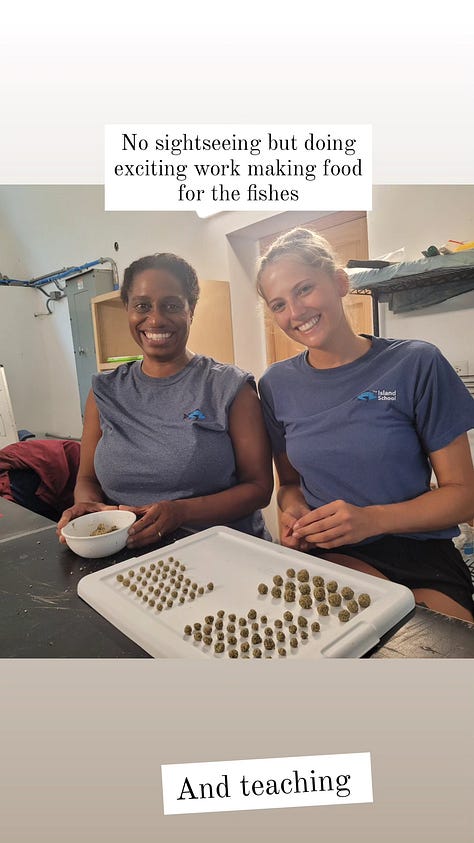
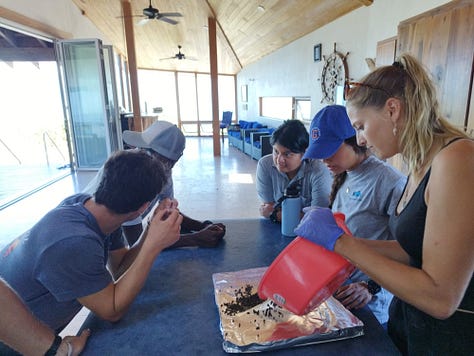
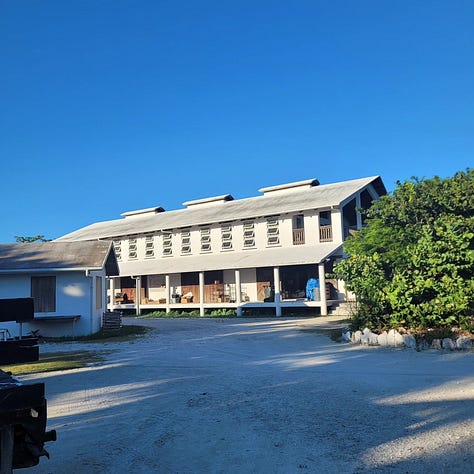
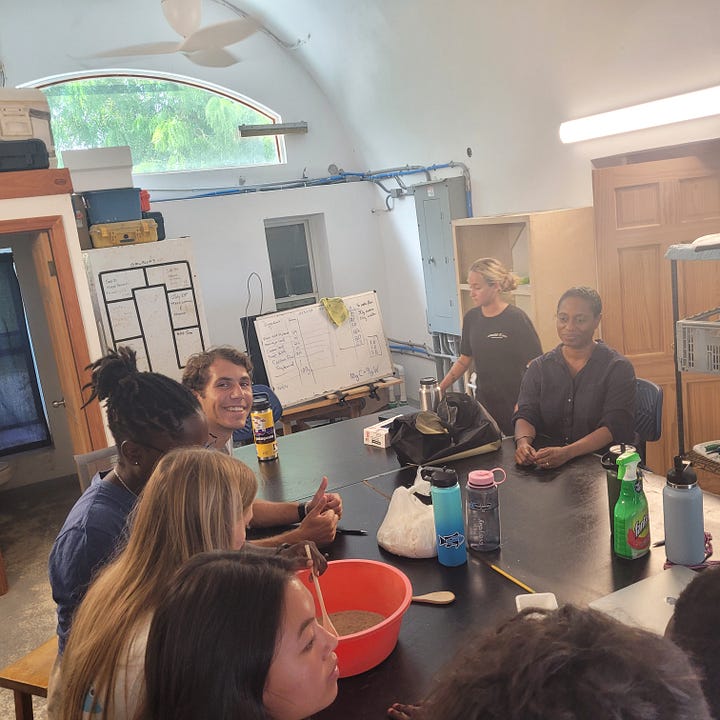
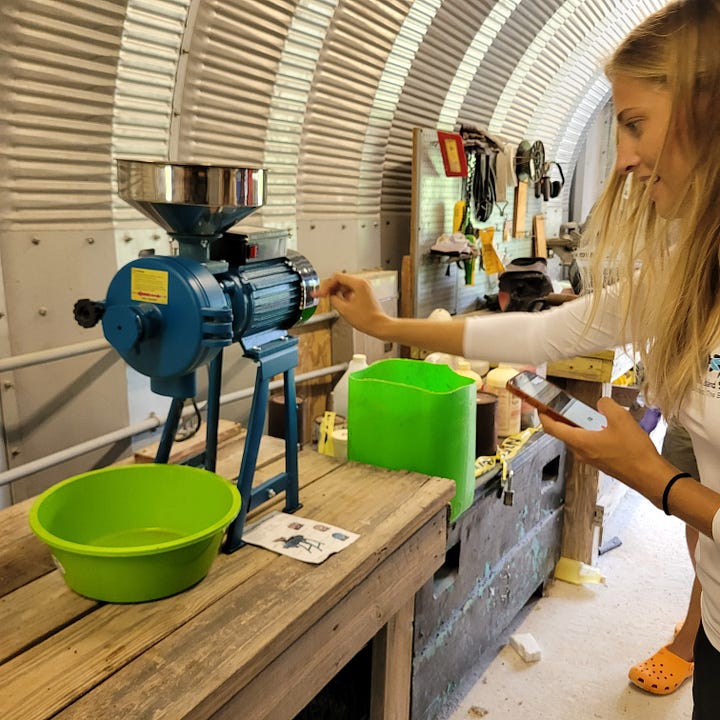
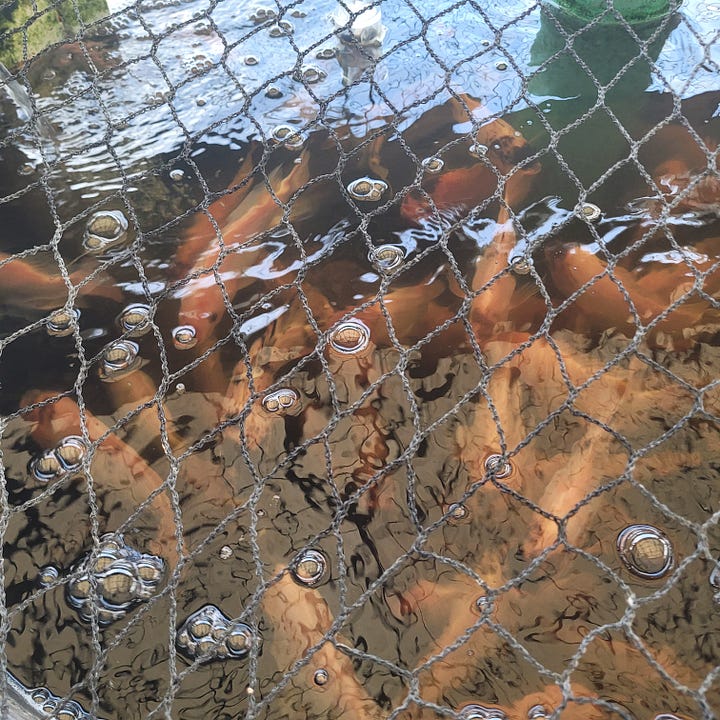
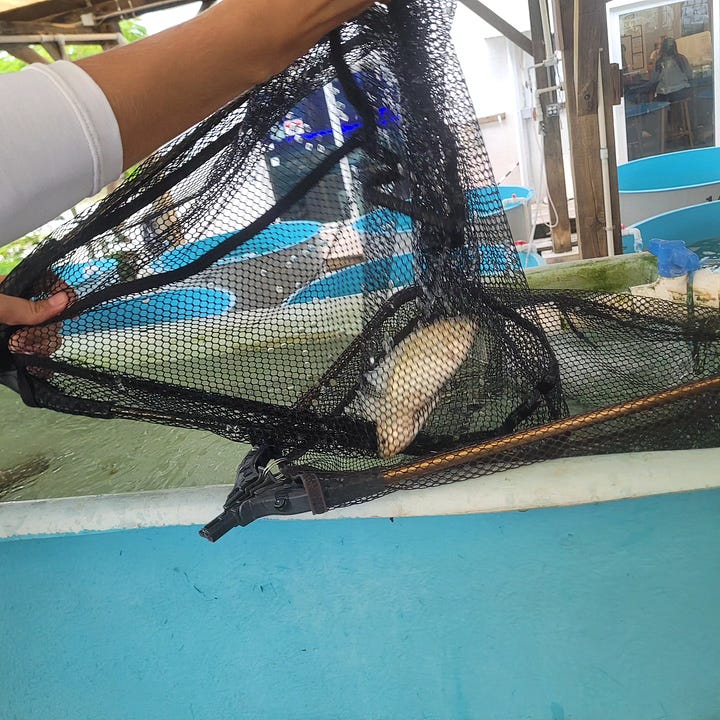
I also had the opportunity to attend the Caribbean Week in Agriculture in Nassau where I was a panelist for the CRFM-hosted seminar UNLOCKING THE CARIBBEAN BLUE ECONOMY.
I worked alongside Mia Avril and Megan Poulton to explore the use of local ingredients to formulate a palatable diet for Nile tilapia (Oreochromis niloticus) in the aquaponics system. Much more work needs to be done but this is a start with the hope that this model can be replicated to other islands
Ingredients such as cassava flour, dried moringa leaves, black fly larvae, fish and lobster meal made from fish discards left by fishermen were experimented with.
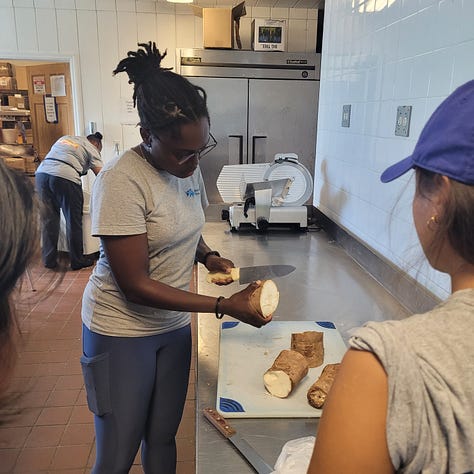
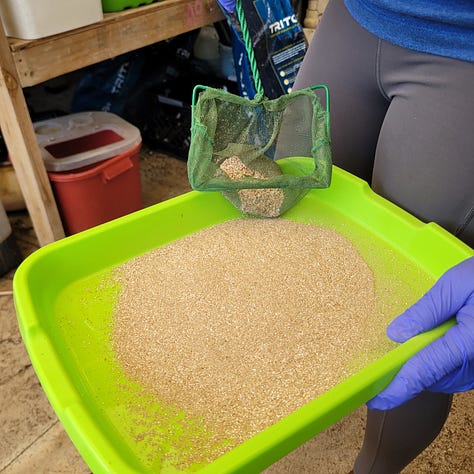
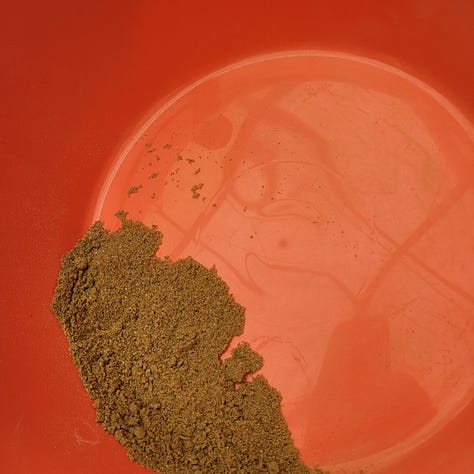
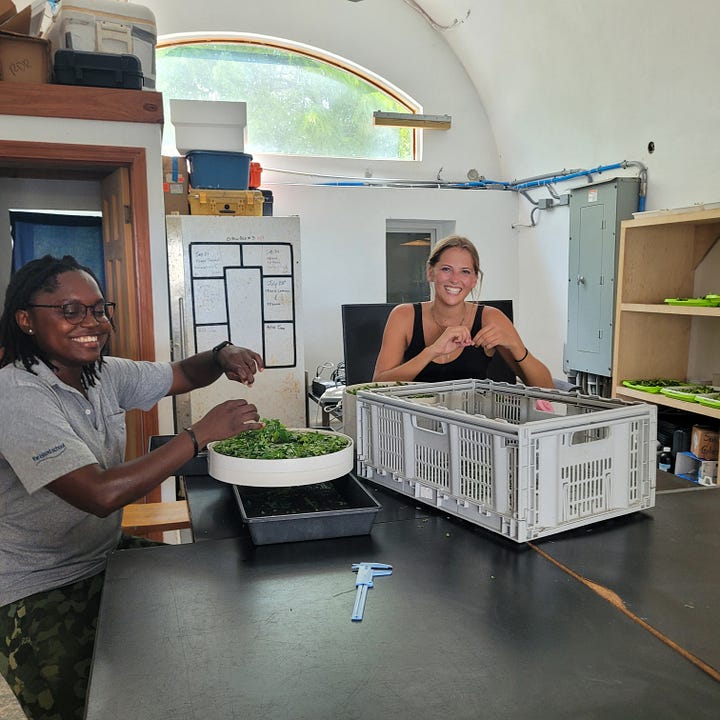
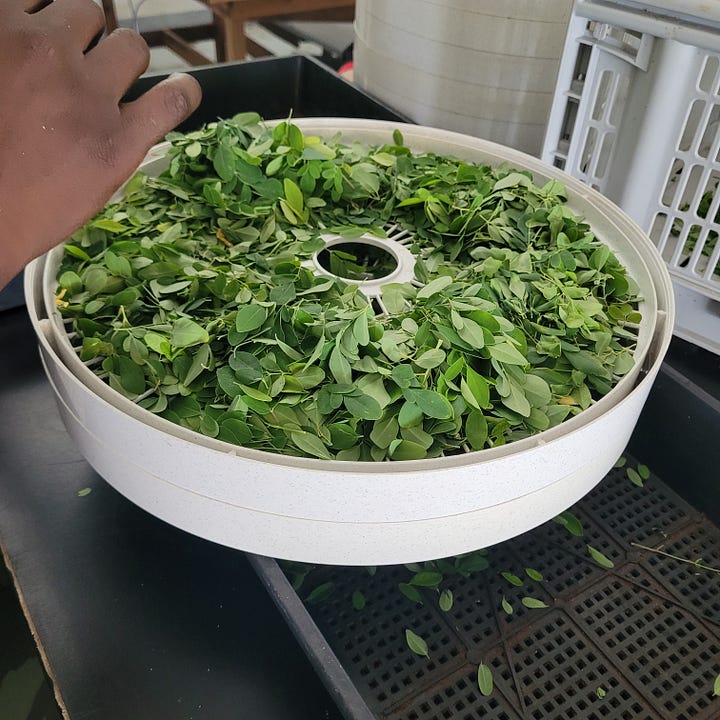
You can read more about Mia and her work in aquaponics in the series “CELEBRATING WOMEN IN CARIBBEAN AQUACULTURE”
AQUAPONICS RESEARCH AT THE ISLAND SCHOOL
IMPORTATION OF FISH FEED IS A LIMITING FACTOR TO SMALL AND MEDIUM-SCALE FISH FARMS
With an annual growth rate of 8.8%, aquaculture is the fastest-growing food sector globally, yet production in the Caribbean region has declined by 40% over the last two decades. This can be attributed to various factors including access to resources necessary for production, such as aquafeed. Aquafeeds constitute the largest percentage of cost in aquaculture production up to 80% of total operating costs. Most Caribbean islands rely on the importation of aquafeed from the US and Latin American countries, and when feed is produced in the Caribbean region, the main ingredients are imported.
The concept of making local feeds is well known. It is currently being practiced in many countries in Africa and remote ones in Asia where access to feed is not reliable. Making on-farm aquafeeds may not be practical for large-scale operations, however, for small and backyard farms, the ability to have control over the access to the feed supply makes a difference in cost and quality. It is also an opportunity to be prepared for an event such as the pandemic where during the lockdown of countries, importation of materials was at a standstill.
A lot more work has to be completed but there is a great potential for a value-added sector to be born from producing local ingredients to make fish feeds.
LOBSTER RESEARCH
I also had the pleasure of observing the Caribbean spiny lobster conservation work of Dr. Nicholas Higgs, the Director of the Island School and learning from our next generation young women scientists. (For more visual content please visit our Instagram Page).
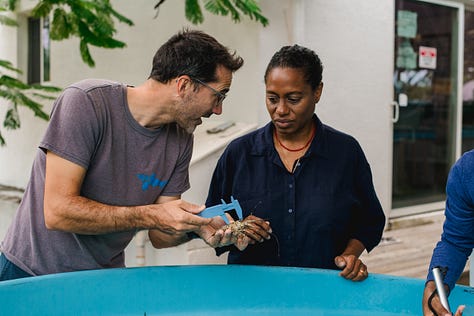
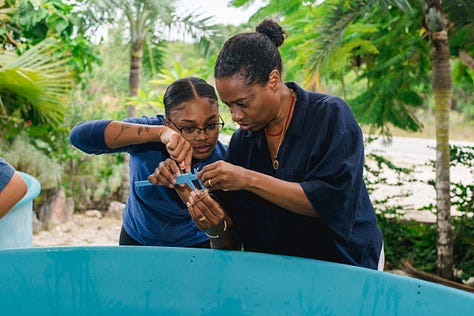
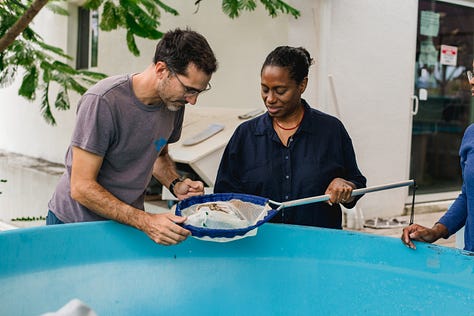
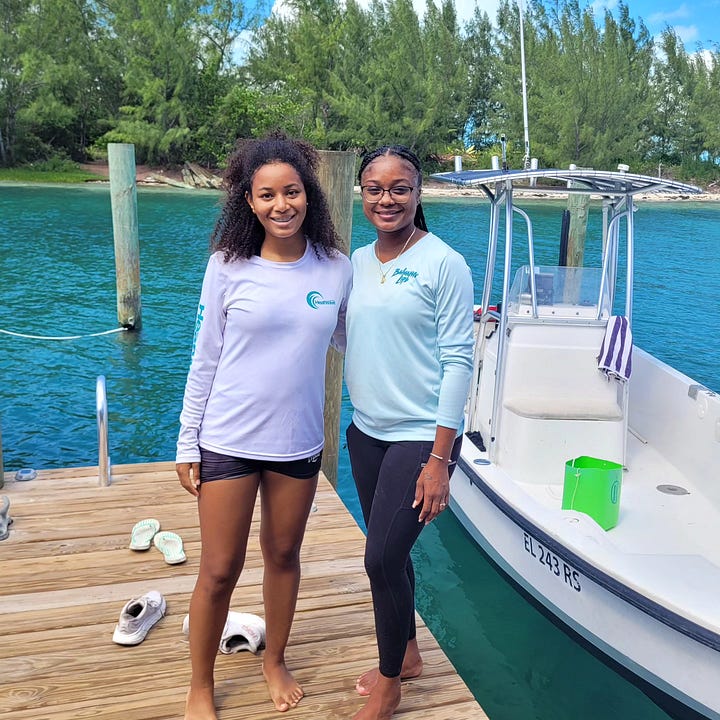
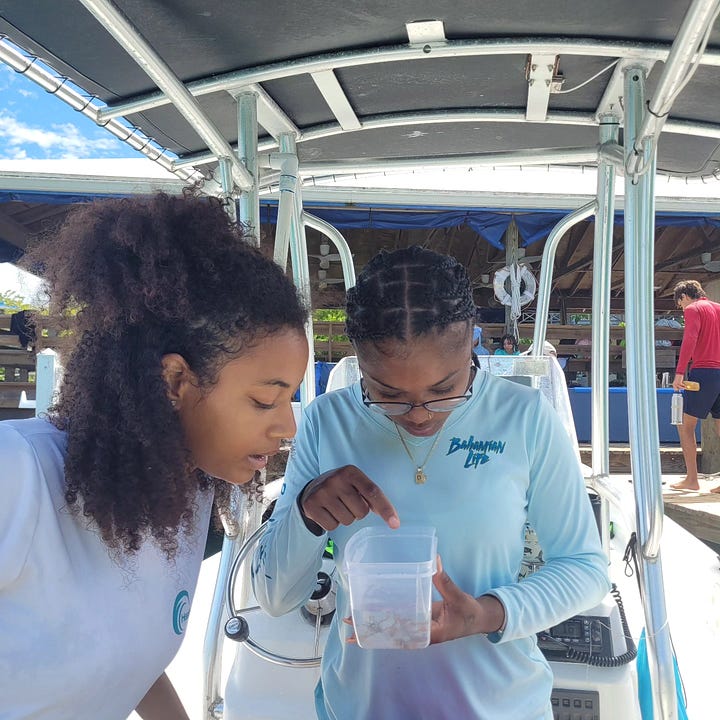
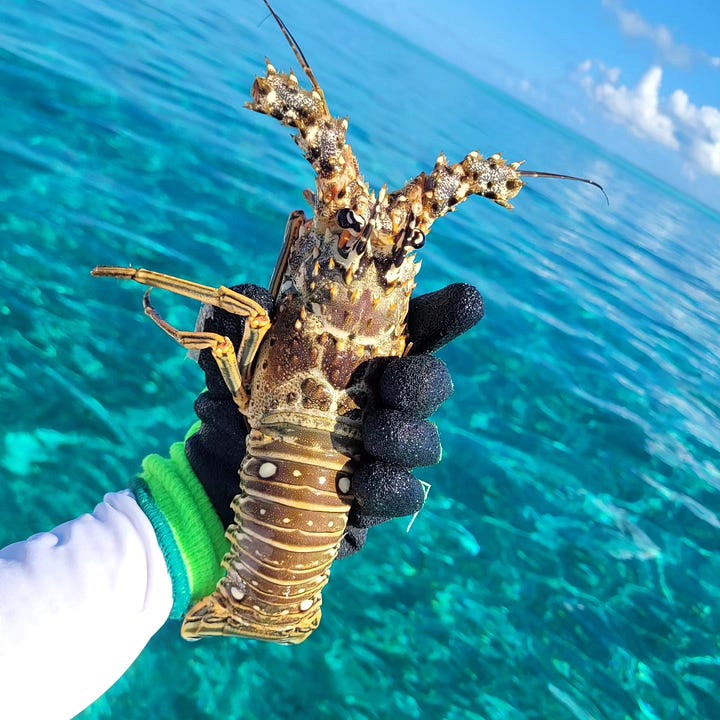
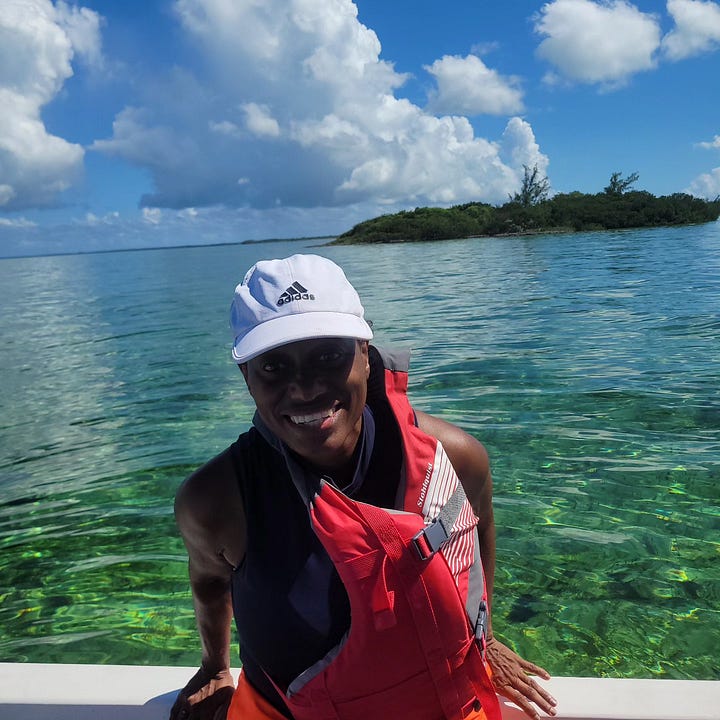
I look forward to sharing with you in future posts more about this amazing experience.










